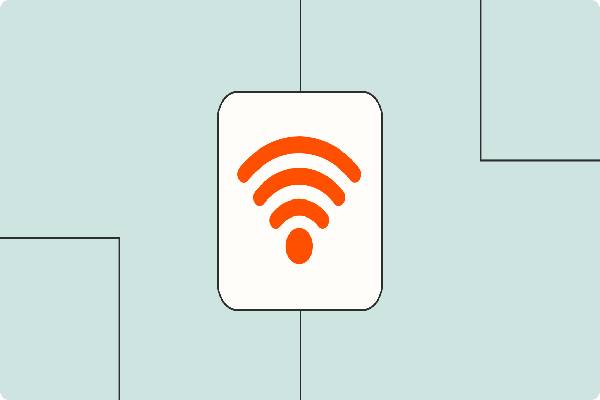The Future of Digital Healthcare
Digital healthcare is rapidly evolving, reshaping the way we access medical services, manage our health, and interact with healthcare professionals. As technology continues to advance, the future of digital healthcare holds tremendous promise in improving patient outcomes, enhancing efficiency, and increasing accessibility to medical services. In this complete guide, we will explore the crucial trends and innovations that are shaping the future of digital healthcare.
1. Telemedicine and Remote Patient Monitoring
Telemedicine has gained significant momentum in recent years,
and it is poised to play an even more prominent role in the future of
healthcare. This technology lets patients to consult with healthcare providers
remotely, eliminating geographical barriers and improving access to care.
Remote patient monitoring is an extension of telemedicine,
enabling continuous tracking of vital signs and health metrics using wearable
devices and sensors. The future will see the integration of more sophisticated
monitoring tools, providing real-time data to healthcare providers and allowing
for early intervention in case of health issues.
2. Artificial Intelligence (AI) and Machine Learning
AI and machine learning are transforming various aspects of
healthcare, from diagnostics to treatment recommendations and drug discovery. The
future of digital healthcare will see AI-powered algorithms becoming
increasingly accurate in analyzing medical images, such as X-rays and MRIs, to
aid in early disease detection.
AI-driven chatbots and virtual assistants will improve
patient engagement and provide 24/7 support for routine inquiries and
medication reminders. Additionally, AI will help healthcare professionals
streamline administrative tasks, such as medical coding and billing, to enhance
efficiency and reduce administrative burdens.
3. Personalized Medicine and Genomics
The future of healthcare will be deeply personalized, with
genomics playing a central role. Advances in genetic testing and sequencing
technologies will enable healthcare providers to tailor treatment plans and
medications to an individual's genetic makeup, maximizing effectiveness and
minimizing side effects.
Additionally, the integration of genomics with electronic
health records (EHRs) will provide a comprehensive view of a patient's medical
history, family history, and genetic predispositions, allowing for more precise
diagnoses and treatment decisions.
4. Blockchain for Data Security
The healthcare industry is increasingly adopting blockchain
technology to enhance data security, interoperability, and patient privacy.
Blockchain ensures that patient records are tamper-proof and can be securely
shared among authorized parties, leading to improved data integrity and reduced
healthcare fraud.
Moreover, blockchain will play a crucial role in
streamlining clinical trials and research by securely managing and sharing
sensitive health data among researchers, institutions, and pharmaceutical
companies.
5. Virtual Reality (VR) and Augmented Reality (AR)
Virtual reality (VR) and augmented reality (AR) have
exciting applications in healthcare. VR can be used for pain management,
rehabilitation, and exposure therapy for mental health conditions. AR overlays
digital information onto the real world, enhancing medical training, surgery,
and diagnostic procedures.
The future will see the development of more immersive VR
healthcare experiences, such as virtual doctor's appointments and medical
simulations for training. AR will continue to assist surgeons during
procedures, improving precision and reducing errors.
6. 5G Connectivity and IoT Devices
The rollout of 5G connectivity will enable faster and more
reliable communication between healthcare devices, paving the way for the
widespread adoption of the Internet of Things (IoT) in healthcare. IoT devices,
such as wearable health trackers and smart medical equipment, will seamlessly
collect and transmit patient data to healthcare providers in real time.
The low latency of 5G will enable remote surgeries and
telemedicine consultations with minimal lag, providing opportunities for more
complex medical procedures to be conducted remotely.
7. Big Data Analytics
The healthcare industry generates vast amounts of data
daily, and big data analytics will play a pivotal role in extracting valuable
insights from this information. Machine learning algorithms will analyze
patient data to identify trends, predict disease outbreaks, and assist in
population health management.
Healthcare providers will use big data analytics to improve
patient care through predictive modeling, identifying high-risk patients who
may require early interventions or lifestyle modifications to prevent chronic
diseases.
8. Voice-Activated Healthcare
Voice-activated technologies, such as smart speakers and
voice assistants, are becoming increasingly integrated into healthcare.
Patients can use voice commands to schedule appointments, refill prescriptions,
and receive health-related information.
For individuals with limited mobility or visual impairments,
voice-activated devices enhance accessibility to healthcare services and
information. In the future, we can expect further advancements in voice
recognition technology to provide more accurate and tailored healthcare
assistance.
Conclusion
The future of digital healthcare promises a transformative
shift in how we approach healthcare delivery, diagnosis, treatment, and
prevention. With advancements in telemedicine, AI, genomics, blockchain, VR,
and IoT, healthcare is becoming more accessible, personalized, and efficient.
As these technologies continue to mature, they will contribute to improved
patient outcomes, reduced healthcare costs, and enhanced overall well-being.
However, ethical considerations and data privacy must remain at the forefront
of these developments to ensure that the benefits of digital healthcare are
maximized while minimizing risks.


.jpg)